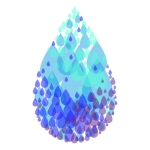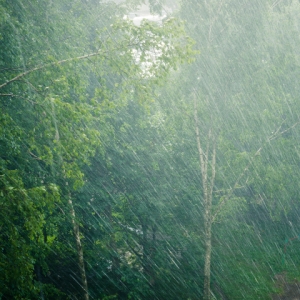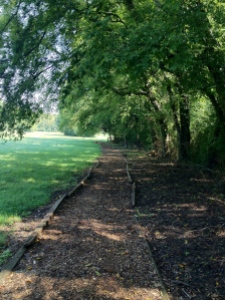 This was the first time I’d felt called to go on a spiritual pilgrimage. I needed to meet God on the land of my ancestors, trusting that this would help me step outside of my collapse with shame over the fact that they’d owned slaves.
This was the first time I’d felt called to go on a spiritual pilgrimage. I needed to meet God on the land of my ancestors, trusting that this would help me step outside of my collapse with shame over the fact that they’d owned slaves.
Within the week, I’d confirmed that my friend Alease Bess, whose ancestors had been slaves in North Carolina, was excited joining me on this journey.
I wanted to take something we could offer to the land. My friend and earthmother, Candice Covington, recommended I take rosemary, cajeput and black pepper essential oils for anointing the soil.
“Oil from evergreen cajeput trees,” she explained, “purifies and purges old rot and decay of emotion, pain, loss and fear and creates a fertile place to plant new seeds. As you step onto your ancestral land, you need some of this heavy-duty purification of the old. Rosemary will help strengthen and center you with its healing of memories, and black pepper will strengthen and fortify your cleansing.”
Knowing that I wanted all of the spiritual and energetic support I could muster for this pilgrimage, I packed pocket-sized bottles of each of these oils, trusting I would know when and how to use them.
I gathered maps of North Carolina. I wrote down the few details I knew about the location of the home of the original Tipps immigrant, Lorenz, in Salisbury, and the Dogwood Plantation of his son Jacob near Morganton. Union General Sherman had torched the courthouses that had held the titles to the land, so I had to rely on the description of the general location Mom had found during her genealogical research.
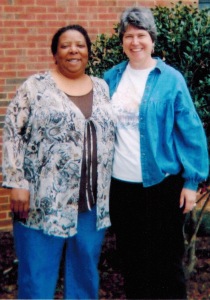 A few weeks later, Alease and I headed west from her home in Durham toward Salisbury. First, we were looking for the homestead of immigrant Lorenz Tipps, Jacob’s father. Lack of exact locations on the map demanded a different sort of navigation, so we listened to the breezes and trusted that the Spirit would guide us.
A few weeks later, Alease and I headed west from her home in Durham toward Salisbury. First, we were looking for the homestead of immigrant Lorenz Tipps, Jacob’s father. Lack of exact locations on the map demanded a different sort of navigation, so we listened to the breezes and trusted that the Spirit would guide us.
Driving up and down country roads, Alease and I explored the area described in Mom’s account of Lorenz’s homesteading documents as “on Hagan Fork off Lyle Creek, tributary of the Catawba River.” In that general vicinity, something faint but clear in both Alease’s and my spirits indicated it was time to pull over, park the car and step out onto the land.
A few fences marked off the field, but no homes lined this stretch of the road. Wandering in silence, we honored the beauty of the land and vastness of the sky. This had been Cherokee land for thousands of years. A few hundred years ago, white settlers named it Rowan County, then Lincoln County and now Catawba County. Political lines drawn in the dirt may have changed, yet the land remained whole.
Alease and I brought what felt to me like meager gifts to atone for such a horrifying history—a few oils and prayer. I picked up a stick and scraped a cross in the hard, dry soil. Opening up the small bottles, I poured fragrant essential oils of tree, herb and flowering vine back into the earth. Their spicy scents rose like incense.
Over the anointed dirt, Alease and I extended our hands in blessing—hers pecan tan and mine a peachy tan. She sang of blood. I spoke of water.
Alease prayed, “Blood has saturated this land. History tried to shove these bloodstains under the grass. We know they are still here.”
She leaned her head back and began to sing, “Nothing can for sin atone; nothing but the blood of Jesus.”
As the last notes of the hymn faded away, she was silent for a few minutes. “Today a new blood is offered, poured freely into this blood-soaked land. This is birthing blood, cleansing blood flowing from Immanuel’s veins.”
I added my prayer: “Come living waters, come to this country soaked with generations of tears. Wash the land and satisfy our deepest thirst.”
When the anointing was complete and a rock left to mark the spot, we returned to the car and drove away. The reality of both of our ancestors’ experiences remained unchanged, yet we felt lighter.
We stopped in town to break bread together and share stories sparked by the morning. Then, we headed west to track down the land that once was Jacob and Margaret Tipps’s Dogwood Plantation.
After the Revolutionary War, Lorenz’s son Jacob moved westward a few miles to Burke and Caldwell Counties to make his fortune. He staked his claim, worked the land and received the title to six hundred and forty acres. Jacob and Margaret had fourteen children and “owned” thirteen African slaves.
“Near the Morganton-Lenoir airport” was as much as we knew. Alease and I drove up and down the roads near the airport. Old Amherst Road wound its way to a new subdivision. We turned around and drove halfway back down the road. Once again, we both agreed when it felt like we had arrived at the right place, and we stopped the car.
Stepping out, we walked through a break in the trees onto to the edge of a pasture. Ancient mountains had eons ago eroded into the blue hills that lined the far side of the field, while Jacob’s plantation home and slave shacks had long since disintegrated.
Sitting on the ground, I picked up a rock. Once again I scored the hard earth and poured out the 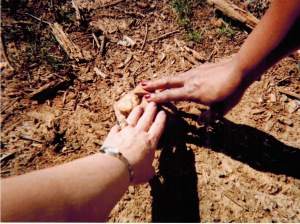 anointing oils while Alease and I prayed.
anointing oils while Alease and I prayed.
As our prayers grew silent, I stood and walked over to lean on a white pine that might have shaded my family members when they lived here. Through her prickly bark, a warm tingling soothed my back, just behind my heart allowing my shame and anger at Jacob to lessen. The sins of racism and slave-owning remained, but compassion flowed freely in me and out into the tree.
Gazing at the Smoky Mountains, Alease stood at my side praying softly. A white pick-up truck whizzing down the road startled me. Through the dust I saw a white-skinned man at the wheel, gun on a rack behind his head. When he caught sight of us, he did a double take. I assumed he wondered what we were up to.
Actually, it wasn’t a bad question. What in the world were we up to?
We were there on a sacred pilgrimage, not to our spiritual holy land in Israel but to our ancestral land. Standing together, Alease and I felt the hallowed ground under our feet and prayed that healing would move forward and back through the generations.
The next day we headed for our respective homes. Through this shared pilgrimage, I had been given a way to honor my ancestors without forgetting that they also owned slaves. The land and our prayers wove the stories of Alease’s and my families, their joys and woes, into a single fabric.
Excerpted with a few adjustments for this shortened format from Big Topics At Midnight: A Texas Girl Wakes Up to Race, Class, Gender and Herself, my book published by Rosegate Press in 20012, pages 274-286.





